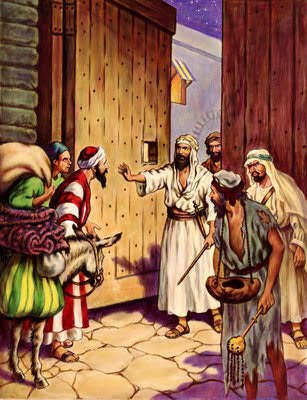Thursday: Nehemiah’s Example
Read Nehemiah 5:14-19. What reasons does Nehemiah give for not demanding “the governor’s provisions [fees]” (Neh. 5:18, NKJV) from the people?
Nehemiah most likely wrote the account in these verses after his return to the court of King Artaxerxes, after his 12 years of governorship in Judah. Although governors were entitled to receive revenue from their subjects,
Nehemiah never claimed this right, but rather financed his own living. Not only did he pay for his own expenses, but he also provided for his family as well as the whole court. Zerubbabel, the first governor, is the only other governor whose name we know. When Nehemiah says “the former governors”, he is most likely referring to the governors in between Zerubbabel and himself. As a result, by the time he was done with his term in office, he very likely lost money. Rather than acquiring riches, as one would expect from a prestigious position, he probably forfeited wealth and possessions. Nehemiah was wealthy, which is why he could provide the daily food for many people, and he was generous in supplying plenty to others (Neh. 5:17-18).
Though it was not the same thing as what Abraham did after the rescue of those taken captive by some of the surrounding nations (see Genesis 14), what Nehemiah does here nevertheless reveals the same crucial principle.
Read Nehemiah 5:19. What is he saying there, and how do we understand this in terms of the gospel?
What we see with Nehemiah is an example of someone who put the Lord and the Lord’s work before his own personal gain and advantage. It’s a good lesson for us all, regardless of our particular situation. It’s easy to work for the Lord when it doesn’t cost us much.
| Read Philippians 2:3-8. In what ways, right now, can you reveal in your own life the self-denying principles expressed here? |


The notion of servant leadership is an important one in Christian thinking. It is a key element of the ministry of Christ as expressed in the Gospels, and is in strong contrast to some of our leaders and politicians today. But generosity is not just the province of leaders nor is it limited to our use of money.
Here is something to think about. In my role as visuals ministry leader in our church for about 20 years, I have had to interact with many church leaders when they have come to preach, Typically they have wanted to include some form of visual media as part of their presentation. Most of these folk have been quite comfortable to work with. They put you at ease, and don’t demand that you do things their way because of who they are. There have been some exceptions, who make demands and have expectations that go beyond technical feasibility. Fortunately that has not happened very often. But it has happened – and I have a long memory!
Being a leader is not a licence to privilege, but a call to responsibility. Part of that responsibility is being a good example.
Nehemiah was a great example of putting the work of God ahead of his own personal interest. He certainly had the right to tax the people for his support (others had done it before him), but he didn’t take that right because it wouldn’t help the work of God.
The apostle Paul is another great example of someone who had the right to be supported but didn’t take that right because it was better for the cause of the gospel (1 Corinthians 9:1-15).
Nehemiah did what was right before God, not what was “right” for his own cares and concerns – because he knew he would have to answer to God.
Nehemiah could say this because it didn’t matter to him what others did, how the crowd acted, what the rest of the world thought. He lived by another standard. We should have even better standard than Nehemiah did, and we should say, when confronted by the sin this world takes for granted, I did not do so, because of the love of Jesus.
Nehemiah not only did not take when he could have; he also gave when he didn’t have to feeding as many as 150 people regularly.
Nehemiah, in his own life, lived the way he told the nobles and rulers to live – to not take personal advantage of another’s need. He did what every godly leader must do: he never expected more of his followers than he expected of himself.
In his prayer, Nehemiah did not look for praise from man – but from God.
Christian counsels are an invitation for a balance living in community! Our best defense is to trust in God for justice! He never fails!